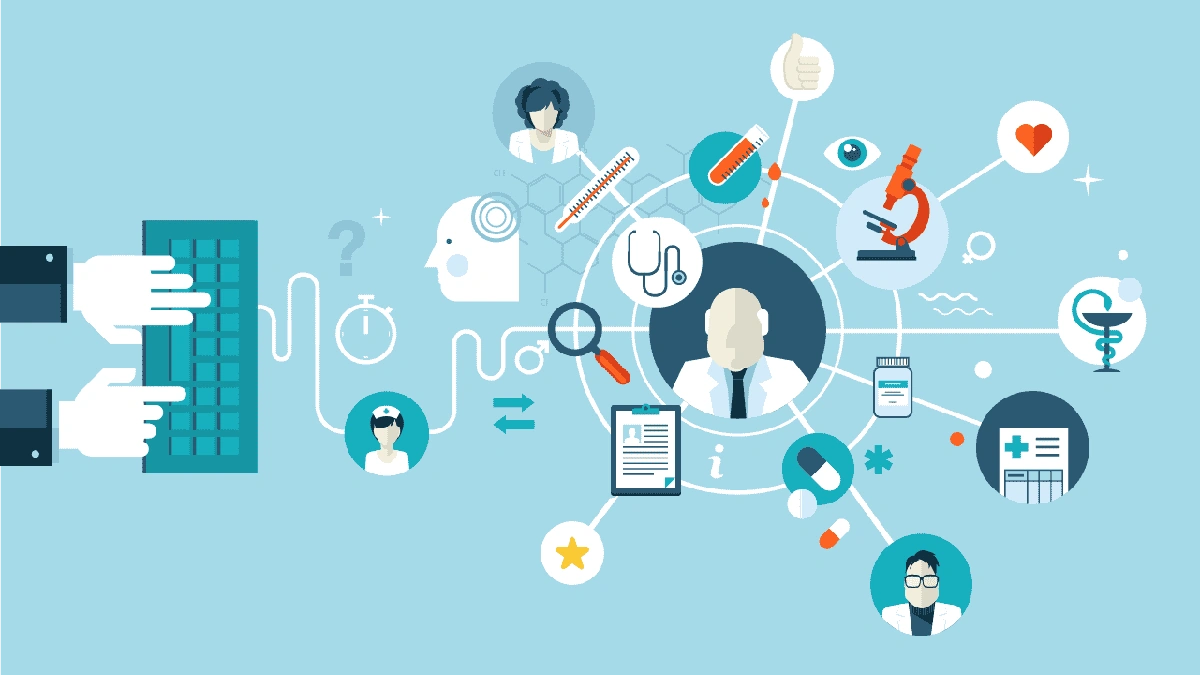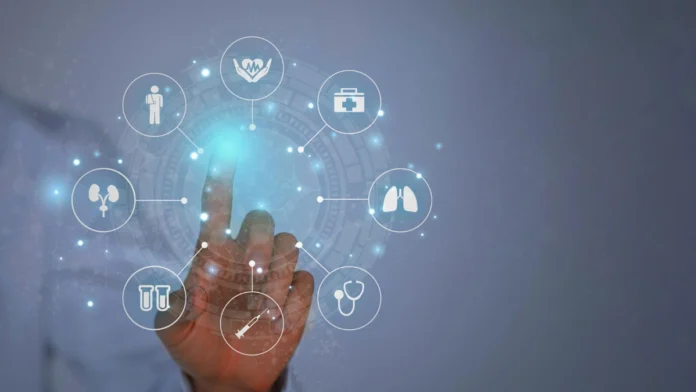Okay, let’s be honest – when you think of Apple, you probably think of iPhones, sleek laptops, and maybe even those fancy wireless earbuds. But digital health ? That might not be the first thing that springs to mind. But, here’s the thing: Tim Cook’s Apple is quietly, but very deliberately, planting its flag in the world of healthcare. And it’s not just about counting steps on your Apple Watch. It’s about revolutionizing how we understand, manage, and improve our health.
The “Why” | Apple’s Grand Vision for Healthcare

So, why is Apple, a tech giant known for its consumer electronics, suddenly so interested in health technology ? Well, there are a few reasons. First, the market is massive. Healthcare is a multi-trillion dollar industry ripe for disruption. And Apple, with its deep pockets and user-centric design philosophy, is uniquely positioned to capitalize on this. What fascinates me is the potential for preventative care. Imagine a world where your devices proactively monitor your health, alerting you to potential problems before they become serious. That’s the promise Apple is chasing.
But it’s also about something deeper. Tim Cook has repeatedly emphasized Apple’s commitment to improving people’s lives. And what better way to do that than by empowering individuals to take control of their health? The Apple Watch, for example, is already capable of detecting atrial fibrillation, a potentially life-threatening heart condition. It’s not just a gadget; it’s a medical device on your wrist. This focus on wellness aligns perfectly with Apple’s brand image and their user’s expectations of seamless integration and user-friendly experiences.
How Apple is Already Shaping Personalized Health
Apple isn’t just talking the talk; they’re walking the walk – and have been for years. Think about HealthKit, ResearchKit, and CareKit. These are powerful frameworks that allow developers to create health and medical apps that seamlessly integrate with Apple devices. Apple isn’t trying to build every health app themselves. Instead, they’re creating the tools and the ecosystem that allow others to innovate. And that’s smart.
For example, ResearchKit allows medical researchers to conduct large-scale studies using the iPhone and Apple Watch. This means they can gather data from thousands of participants in real-time, leading to faster and more accurate insights. CareKit, on the other hand, helps patients manage their health conditions by providing them with tools to track their symptoms, medications, and appointments. The impact of these frameworks is quietly revolutionizing medical research and patient care. We are now seeing a proliferation of digital therapeutics aimed at mental health too.
The Emotional Angle | Empowering Individuals
Let’s be real: navigating the healthcare system can be stressful, confusing, and even scary. Apple has the potential to change that. By putting health information directly in the hands of individuals, they can empower them to make more informed decisions about their care. Imagine feeling more confident and in control of your health data privacy , because you know you have secure access to it on your iPhone. Or being able to easily share your health information with your doctor, leading to more personalized and effective treatment. This sense of empowerment can have a profound impact on people’s well-being.
Consider the anxiety many people face when waiting for test results or trying to understand complex medical jargon. Apple can help bridge this gap by providing clear, concise, and easily accessible information. They can also connect patients with support groups and other resources, creating a sense of community and belonging. I initially thought this was simply about convenience, but then I realized it’s about something much bigger: giving people the tools and the support they need to live healthier, happier lives. Moreover, wearable devices are now generating vast amounts of real-world evidence , enabling better decision making for patients and clinicians.
The Road Ahead: Challenges and Opportunities in remote patient monitoring
Of course, Apple’s journey into healthcare isn’t without its challenges. Data privacy is a major concern. People need to trust that their health information is safe and secure. Apple has made privacy a core value, but they need to continue to be transparent about how they collect, use, and protect user data. Interoperability is another challenge. Health data is often siloed in different systems, making it difficult to share information between providers. Apple needs to work with other players in the industry to create open standards and ensure seamless data exchange. And then there’s the regulatory landscape, which is complex and constantly evolving. Apple needs to navigate these regulations carefully to ensure that their products and services comply with all applicable laws. According to the FDA website , medical device regulations are stringent and require careful navigation.
But the opportunities are immense. Apple has the potential to transform healthcare in ways we can only begin to imagine. From personalized medicine to remote patient monitoring, the possibilities are endless. And with Tim Cook at the helm, Apple is well-positioned to lead the way. What I’m excited about is the potential for AI and machine learning to analyze health data and provide insights that were previously impossible. Imagine an AI-powered assistant that can help you manage your chronic conditions, predict potential health risks, and personalize your treatment plan. That’s the future of healthcare, and Apple is determined to be a part of it.
FAQ | Apple & Your Health
Will the Apple Watch replace my doctor?
No, the Apple Watch is not intended to replace your doctor. It can provide valuable health information, but it’s important to consult with a healthcare professional for diagnosis and treatment.
Is my health data safe with Apple?
Apple takes data privacy seriously and uses encryption and other security measures to protect your health information. You have control over what data is collected and how it is shared.
Can I use Apple Health data with my existing healthcare provider?
Yes, many healthcare providers are now integrating with Apple Health, allowing you to share your health data with them securely.
What if I don’t have an Apple device? Can I still participate in health research?
While Apple’s ResearchKit is designed for Apple devices, some researchers may offer alternative ways to participate in their studies.
How does Apple ensure the accuracy of health data collected by its devices?
Apple is constantly working to improve the accuracy of its health sensors and algorithms. However, it’s important to remember that these devices are not medical-grade and should not be used for self-diagnosis.
Ultimately, Apple’s foray into consumer health isn’t just about selling gadgets; it’s about empowering people to live healthier lives. And that’s something we can all get behind. It’s a slow burn, not a sudden explosion, but the embers of change are definitely glowing brighter under Tim Cook’s leadership.

